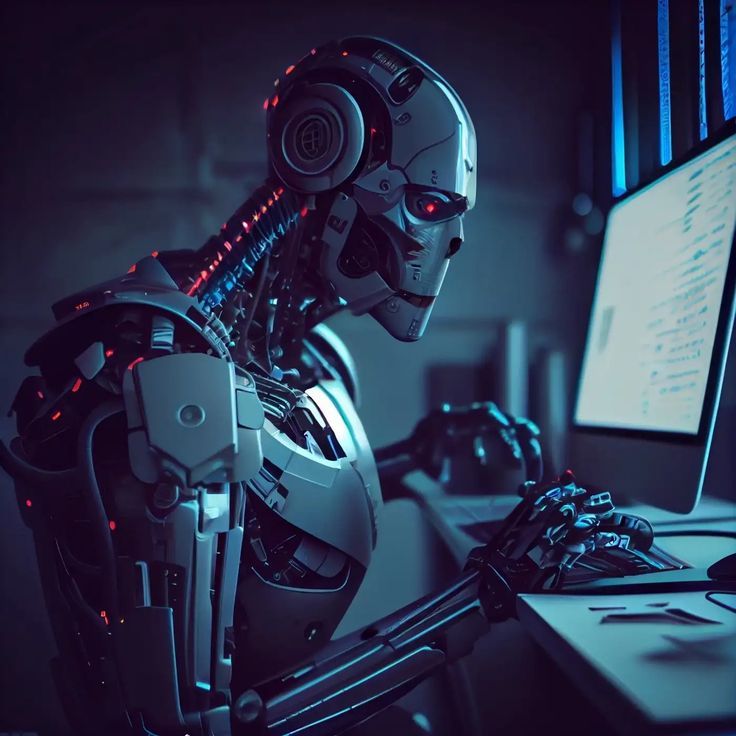In the ever-evolving landscape of technological innovation, few concepts have garnered as much attention and fascination as artificial intelligence (AI). From science fiction to reality, AI has transcended its fictional roots to become a transformative force across various industries, reshaping the way we work, live, and interact with the world around us. In this article, we embark on a journey to explore how AI is fundamentally changing industries and revolutionizing the future.
The Artificial Intelligence Revolution: Pioneering Transformations
Artificial intelligence refers to the development of computer systems capable of performing tasks that typically require human intelligence. These tasks encompass a wide range of activities, including problem-solving, decision-making, language understanding, and even creative endeavors. As AI technologies advance, their impact on industries becomes increasingly profound.
1. Healthcare: Precision and Personalization
The healthcare sector is experiencing a paradigm shift with the integration of AI. Medical diagnosis, drug discovery, and treatment plans are being revolutionized. AI-powered diagnostic tools analyze medical images with unprecedented accuracy, aiding doctors in identifying diseases at an early stage. Machine learning algorithms mine vast datasets to identify potential drug candidates, expediting the drug discovery process.
Additionally, AI-driven personal health assistants offer real-time monitoring and personalized recommendations, empowering individuals to take control of their well-being. This fusion of technology and healthcare is leading to more precise diagnoses, faster drug development, and improved patient outcomes.
2. Finance: Smart Decision-Making
In the financial industry, AI is a game-changer. Algorithms analyze market trends and data at lightning speed, enabling traders to make informed decisions and optimize portfolios. Risk assessment and fraud detection algorithms identify anomalies and patterns, reducing the risk of financial crimes.
Customer interactions are also evolving with the advent of AI-powered chatbots that provide instant customer support and assist with routine transactions. These applications of AI in finance enhance efficiency, accuracy, and customer experience.
3. Manufacturing: Enhanced Automation
Manufacturing processes are becoming smarter and more efficient with AI. Robots equipped with AI algorithms are capable of intricate tasks and adapt to changing conditions on the factory floor. Predictive maintenance powered by AI analyzes equipment data to anticipate maintenance needs, minimizing downtime and improving overall productivity.
Supply chain management is also benefiting from AI-driven insights, optimizing inventory levels and streamlining distribution. The convergence of AI and manufacturing leads to reduced costs, increased output, and higher product quality.
4. Retail: Personalized Experiences
The retail landscape is witnessing a shift from traditional shopping experiences to personalized ones. AI algorithms analyze consumer behavior, preferences, and purchase history to provide tailored product recommendations. Virtual shopping assistants guide customers through their purchase journey, enhancing user engagement and satisfaction.
Additionally, AI-powered visual recognition systems enable cashier-less checkout experiences in stores, transforming the shopping process. Retailers harness the power of AI to create seamless, individualized interactions that cater to each customer’s preferences.
5. Transportation: Autonomous Revolution
The transportation industry is on the brink of an autonomous revolution, largely fueled by AI. Self-driving cars and trucks are being developed with AI algorithms that perceive their surroundings, make split-second decisions, and navigate complex road conditions. This technology has the potential to revolutionize the way we travel and transport goods, enhancing safety and efficiency.
Furthermore, AI-powered traffic management systems optimize traffic flow in real time, reducing congestion and travel time. The transportation landscape is undergoing a transformative shift, where AI takes the driver’s seat in innovation.
6. Entertainment
In the entertainment industry, AI is unlocking new creative possibilities. AI algorithms analyze user preferences and viewing habits to suggest personalized content recommendations on streaming platforms. This technology also plays a role in content creation, generating music, art, and even literature.
Video games are benefiting from AI-driven procedural generation, creating dynamic and immersive game environments. From content curation to content creation, AI is shaping the way we consume and engage with entertainment.
7. Challenges and Opportunities
As AI continues to infiltrate industries, it brings forth both challenges and opportunities. Ethical concerns regarding data privacy, bias in algorithms, and potential job displacement need to be addressed. It’s crucial to ensure that AI technologies are developed and deployed responsibly, prioritizing the well-being of individuals and society.
On the flip side, AI presents a vast array of opportunities. Collaboration between humans and machines can lead to unprecedented innovation, solving complex problems and driving economic growth. The augmentation of human capabilities through AI opens doors to uncharted territories of exploration and progress.
Conclusion
The journey through the transformative landscape of artificial intelligence reveals a future brimming with potential. From healthcare to entertainment, finance to transportation, AI is reshaping industries and propelling us toward a new era of possibilities. The key to navigating this future lies in understanding the power of AI, embracing its potential, and ensuring that its advancements are aligned with ethical and societal considerations. As we stand at the cusp of an AI-driven revolution, it’s our collective responsibility to steer this transformative force toward a brighter, more inclusive future.
